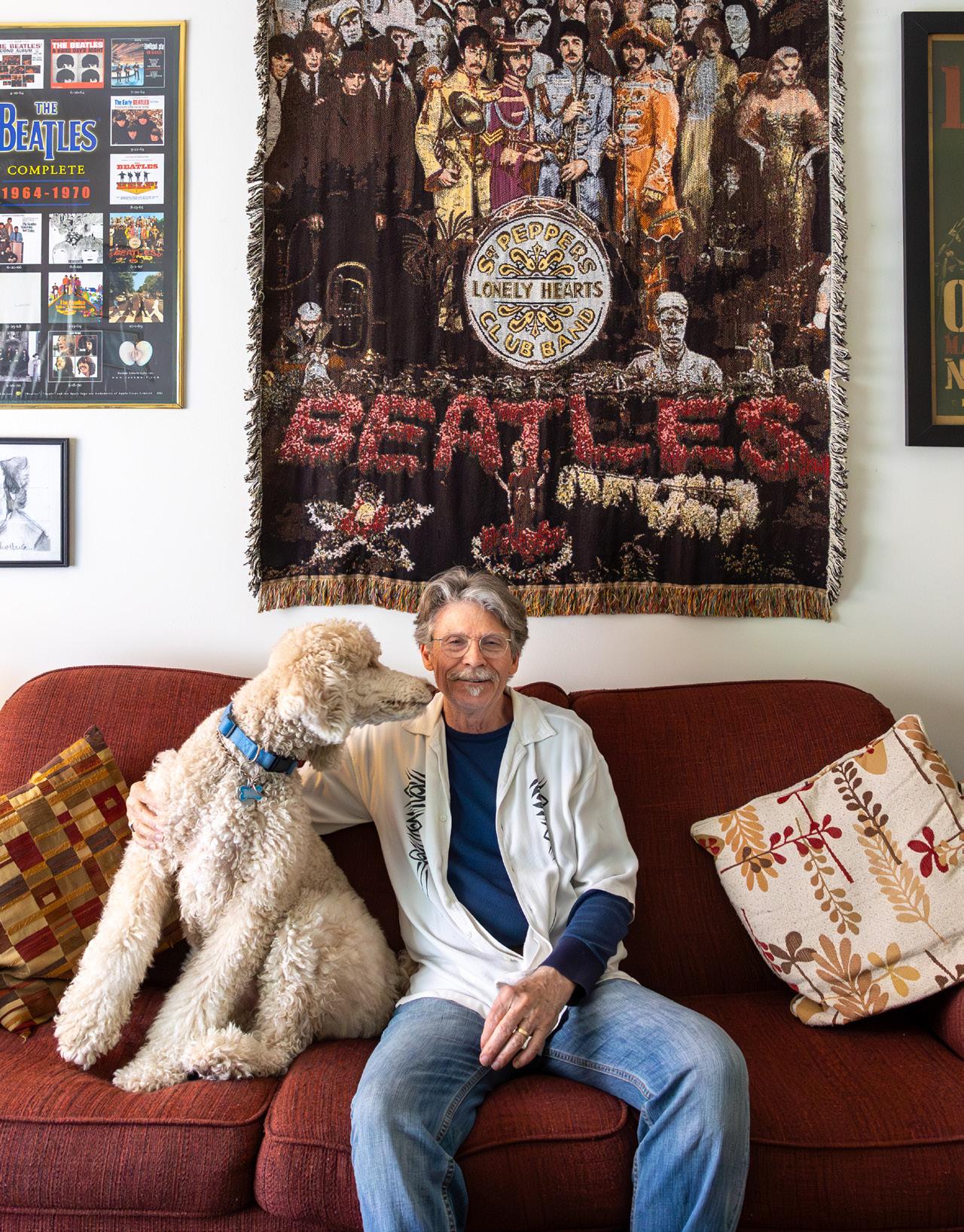

V illageOICEV
SUMMER 2025
Vol. 35, No. 2
Masonic Village include locations in Dallas, Elizabethtown, Lafayette Hill, Sewickley and Warminster.
Published by Masonic Village’s Public Relations Department Masonic Village, One Masonic Drive Elizabethtown, PA 17022
717-367-1121, ext. 33383 or email pr@masonicvillages.org
To subscribe digitally to the Village Voice, visit MasonicVillages.org/publications or scan the QR code.
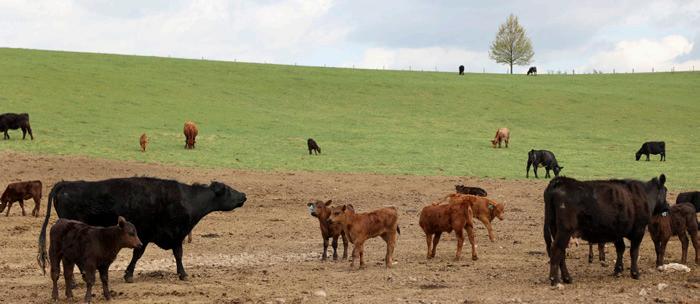
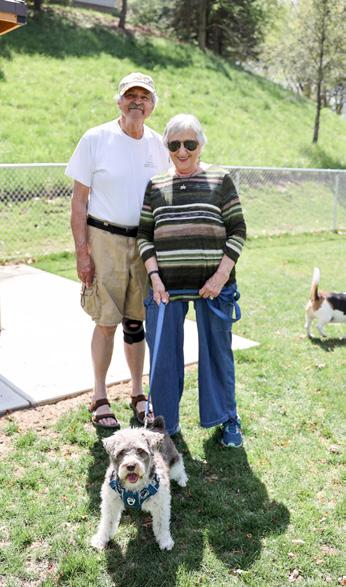
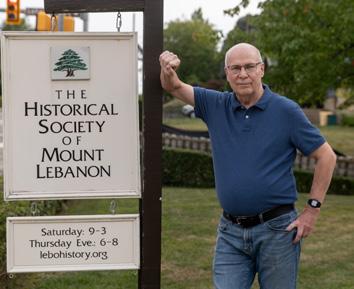
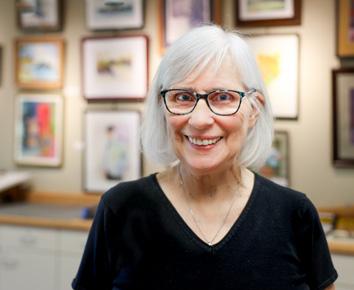
Masonic Village is an Equal Opportunity Employer.
Decisions concerning admissions, the provision of services and referral of residents are not based upon race, religion, color, national origin, ancestry, age (where minimum age for admission is met), sex, sexual orientation, marital status, disability, limited English Proficiency (LEP) or any other protected status.
Photo by Mark Simpson
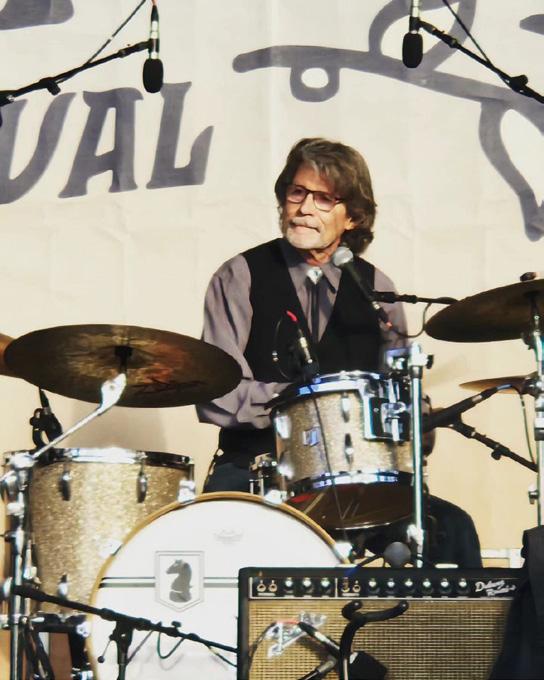
THE BEAT Goes On
When Steve Gill talks about his passion for music –especially the Beatles – his face lights up and his eyes get wide. He even gets emotional at times.
The Masonic Village at Lafayette Hill resident is eager to show off the musical memorabilia that covers the walls of the apartment he shares with his wife, Nancy, or “Nan.” There’s a large tapestry of the “Fab Four” from Liverpool that fills the space above the couch. There are Beatles posters and a 2023 flier for a show featuring Steve’s rock band. He displays a treasured concert T-shirt from a 1966 live Beatles performance at the former JFK Stadium in Philadelphia.
His impressive collection of CDs includes music by the Beatles, the Kinks and the Rolling Stones, among others, and has been meticulously alphabetized by Nan, quite possibly his biggest fan.
“He’s the oldest teenager I know,” said Nan, referring to Steve, today a “young” 74.
The couple go way back, having met at Roxborough High School and becoming high school sweethearts. After 53 years of marriage, Steve and Nan still love to reminisce about the days of yore and what it was like growing up during the music scene of the 1960s.
“Late in my sophomore year of high school, the Beatles were already out and about, and I was a music lover already,” Steve said. “My father’s best friend’s son took guitar lessons since he was eight. We started hanging out together. Another guy up the street had a guitar. Before we knew it, five of us had started a band.”
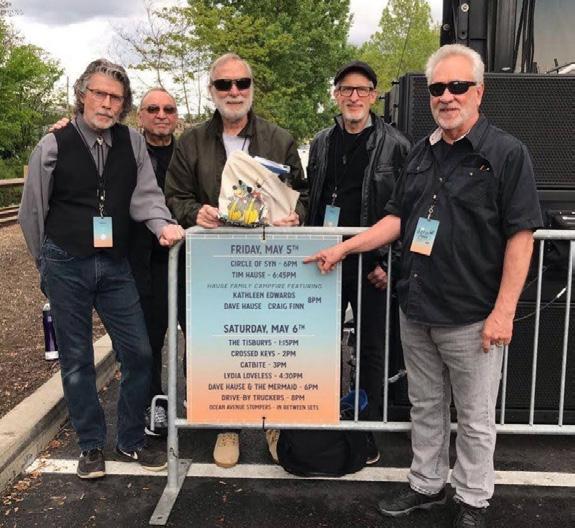
Steve’s band called themselves Circle of Syn (as in synthetic sound), and for one year they rehearsed in each other’s basements on Fridays, Saturdays and sometimes Sunday nights, if their parents could stand it. A former go-go dancer with an ear for music, Nan always had an encouraging or sometimes critical word to offer when needed, Steve said.
“We loved what we were doing, and the sound was really good,” he said.
“I was a drummer, and I played by ear. I used to play on an upside-down trash can until I had enough money to buy a drum set, thanks to borrowing money from my grandmother.”
With more than 50 songs under their belt and a bunch of standard cover songs they learned to play at weddings and other events, Circle of Syn was ready for their debut.
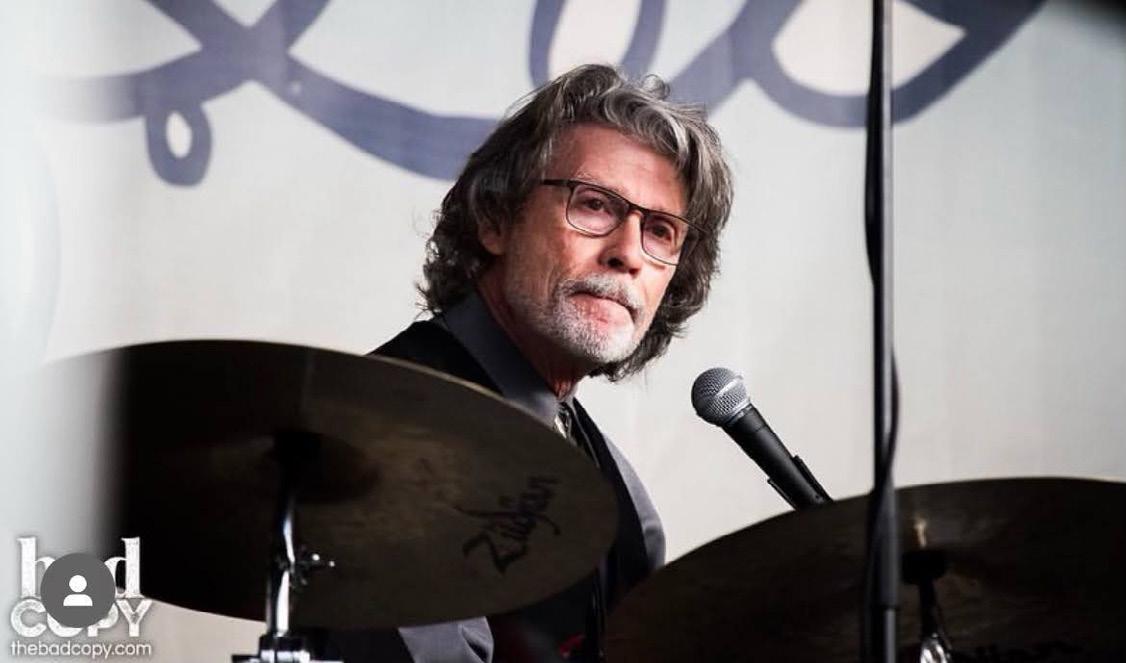
Nan was instrumental in organizing one of the band’s first performances at a coffee house located in the basement of a church in Roxborough, known back then as the Catacombs. The performance was a hit, and the band kept on playing, as other local bands started to do the same, including the Eastsiders and the Haze.
Twenty-three years ago, the lead singer of the Haze organized a Catacombs reunion and performance at the Schuylkill Valley Nature Center. At that point, Circle of Syn hadn’t played together in a while and were itching to recreate that sound.
“We started rehearsing again for the reunion and realized we still sounded good [minus the original rhythm guitarist, who has passed away],” Steve said.
“Some guys play cards or go bowling. We said, ‘let’s get together semi-regularly and start making music again.’”
Today, the band still rehearses twice a month. They found a talented harmonica player to fill the void made by the passing of their rhythm guitarist. They perform locally about four times a year.
“We’re all grown men now with families,” Steve said. “We decided to play out again, but not as much as before.”
Playing music with his band gives Steve “sheer joy” and keeps him feeling young and alive.
“When you work with people long enough and play the same songs, someone gets to the bridge [a musical passage that connects two sections of a song] and takes it in a new direction, and everyone is right there with him … when that happens, the hair stands up on your arms,” Steve said.
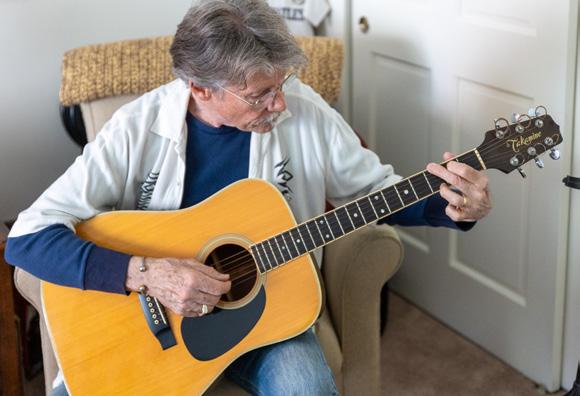
“Or you perform a song exceptionally well, and you get a chill in the middle of the song and think, ‘I’m so glad I’m here just for this moment.’”
Everyone in the band shares vocals, as there are many three- and four-part harmonies in the songs they cover. “‘Nowhere Man’” by the Beatles was one of those ‘ace in the hole’ songs we performed,” Steve said. “It has always gotten us a big wow.”
Steve retired as a maintenance mechanic and general contractor several years ago and moved with Nan to Masonic Village about a year ago. The couple, who are from Philadelphia, wanted to be proactive about finding a place nearby, so they didn’t have to scramble at the last minute if health issues arose.
“The people are so welcoming here,” Steve said. “The maintenance and cleaning staff have been so helpful and friendly to us. They are never too busy to ask how we’re doing. Management is nice and approachable. We found out how long many employees have been here.
That tells you a lot about the organization and how they treat people.”
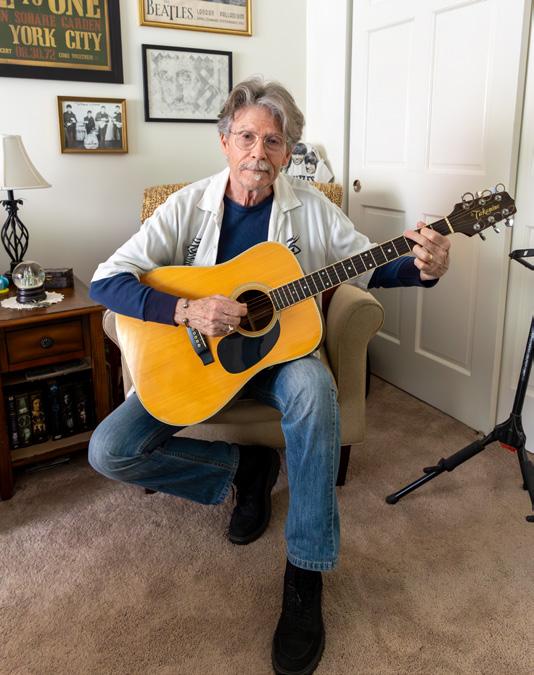
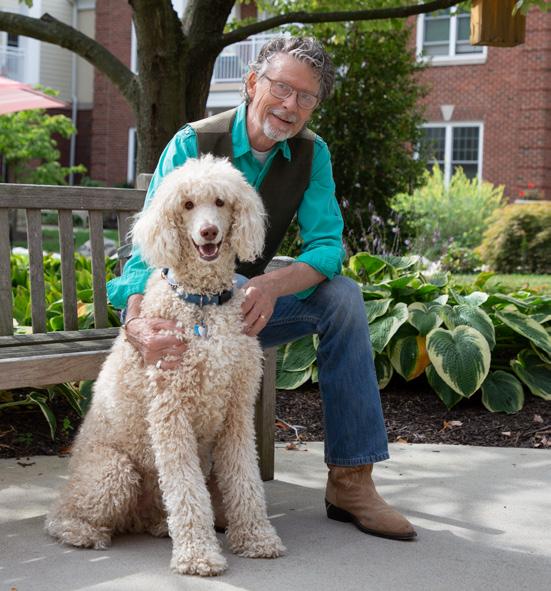
When he’s not walking around campus or showing off his very popular poodle, “Bud,” Steve can usually be found in his apartment, strumming on his guitar or listening to music.
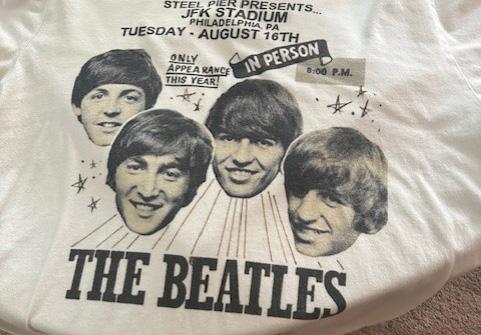
“I am in love with [the Beatles] because in many ways, I sat at their feet … in front of a record player, playing again and again, listening to vocal parts and harmonies,” he said. “That’s how I learned to play the drums, from Ringo Starr. I would listen to the beat and imitate it. Many of their songs had a message. They were saying something. I love a good story, and the Beatles wrote good stories.
“There are people my age who think the Rolling Stones or Elton John should not still be playing because they’re older. Well, of course they’ve aged. They grew up and had life experiences. Older artists still have something to say. We will keep on playing until we can’t anymore.”
IMMERSION PROGRAM:
Lessons in the Classroom and Beyond
For several years, Masonic Village at Elizabethtown has teamed up with Lancaster-Lebanon Intermediate Unit 13 to offer internships and job experience through the Work Immersion Program, benefitting students and mentors alike.
The program offers job training and life lessons. At the start of each year, students learn various skills and know-how, including housekeeping training, not just to work as a housekeeper, but so they know how to take care of their own homes in the future. Instructors are also looking for more opportunities for interns to interact with residents to further build social and workplace skills.
“The biggest benefit of this program is that it gives interns the chance to learn real life skills they’ll need for a job and for living on their own one day,” Ally Devine, program instructor said. “Every day, they learn so much from their mentors — not just how to do the job itself, but also how to work with coworkers and supervisors, interact with the residents and understand the differences between school expectations and real-world work.”
As part of the program, students meet in a classroom located on the ground level of McKee South Apartments for a portion of the day. They then shadow staff in their roles across campus.
Students have interned with laundry, maintenance, environmental services, food services, landscape, central supply and the Masonic Village Farm Market. Some of the students have since joined the organization as full-time employees.
Fernando, a student participating with the program, has interned with the environmental services and central supply departments.
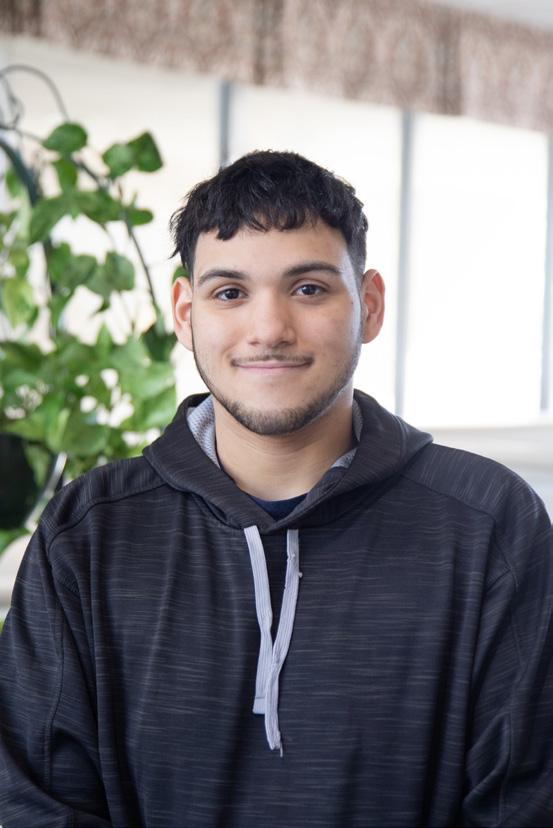
Fernando
“I’ve learned how to clean, and also about filling out applications and building my resume,” he said. “I’ve enjoyed working at the Patton Campus [across the street from Masonic Village]. Everyone has been very social.”
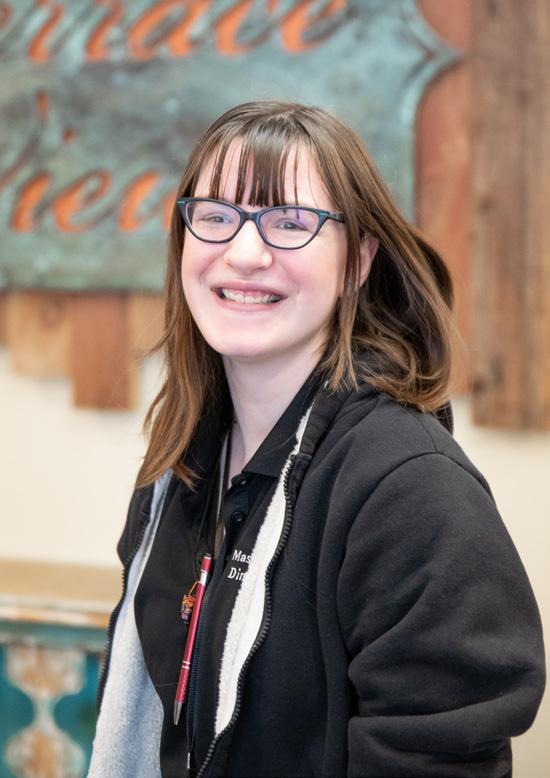
Another student, Mackenzie, has been working with the food services department.
“The staff have helped me get out of my shell,” she said. “I was honestly a bit frazzled at first, but there are people here to help me. We get along really well. I plan to go to college in the future, and this job has really helped me. I’ve learned how to handle different situations. The Masonic Village program is amazing.”
While the students gain valuable professional skills, Masonic Village is benefitting from hardworking, dedicated interns, and ideally, future employees. Although the Work Immersion Program intends to focus on the students’ experiences, it has gone on to impact Masonic Village employees and residents. Mentors have the chance to work side-by-side with students, watching them progress and excel from day one.
“It is a learning opportunity for both the student and mentor,” said Lexi Reed, assistant director of facilities at Masonic Village. “There are training opportunities for our employees, and students are able to help our staff with their daily tasks. The students have a great work ethic. They follow directions and have a willingness to learn.”
“The growth and maturity we see in our interns wouldn’t happen without the mentors, supervisors and residents who take the time to get to know them, guide them and help them learn,” Ally said. “Their support makes all the difference.”
Mackenzie
Helping Others FIND THEIR ROOTS
Jim Stuber is a new resident at Masonic Village at Sewickley with an extensive background in genealogy that he’s eager to share with others. He led the Mt. Lebanon Genealogy Society for 12 years.
At Masonic Village, he has volunteered to lead a group once a month to share knowledge on topics of genealogical interest. He covers more about genealogy, how to find free resources and use DNA in your search and more.
“I’m trying to figure out where people are and what their interests are,” he said. “People are clearly interested in what I present, but it needs to become more interactive moving forward. I like doing things and helping people however I can.”
Jim has been researching his ancestors for 40 years – back when he first decided to visit the National Archives – and has traced them back to six countries in Europe, several as early as the 1400s and 1500s. He has self-published his family history twice.
“Something about holding 100-yearold documents in my hand triggered something,” he said. “Then it became a puzzle to solve. I like puzzles and challenges and figuring things out, and genealogy is a puzzle. Finding out who your ancestors are and more about them … sometimes it’s easy, and sometimes it’s a challenge.
“It’s satisfying to learn about the stories of your ancestors and the stories you heard as a child and the stories nobody knew because they were hidden. There are always surprises.”
The most important resource he uses is Ancestry.com, followed by Familysearch.org, Newspapers.com and other more localized publications.
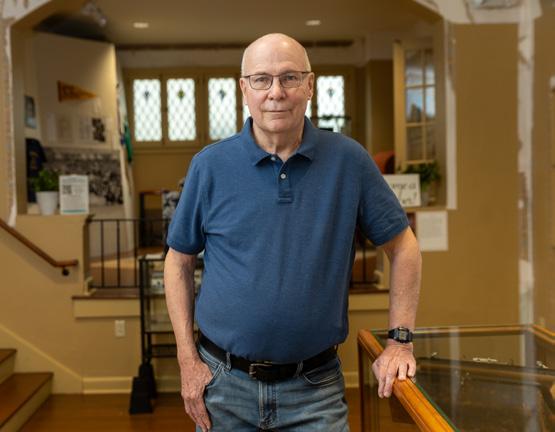
“There are dozens of sites depending on where a person lives,” he said. “I never pay for any of my subscriptions. I have found ways to access everything I need for free, generally through libraries and state of Pennsylvania resources. I could do it more quickly if I agreed to pay for something, but it’s a badge of honor at this point.”
For many years, Jim served as the co-chair of the Mt. Lebanon Genealogy Society, and he served on the board of directors for the Historical Society of Mount Lebanon, where their library is named in his family’s honor. While no longer on the board, Jim has actively fundraised for the historical society and Masonic Village through his personalized genealogy studies, which he has done for the past eight years. He charges between $150 and $250 for his work, depending on the time and effort it takes.
In exchange for a tax-deductible donation, Jim conducts research on a person’s family history and presents them with a binder of information, including
Photo by Mark Simpson
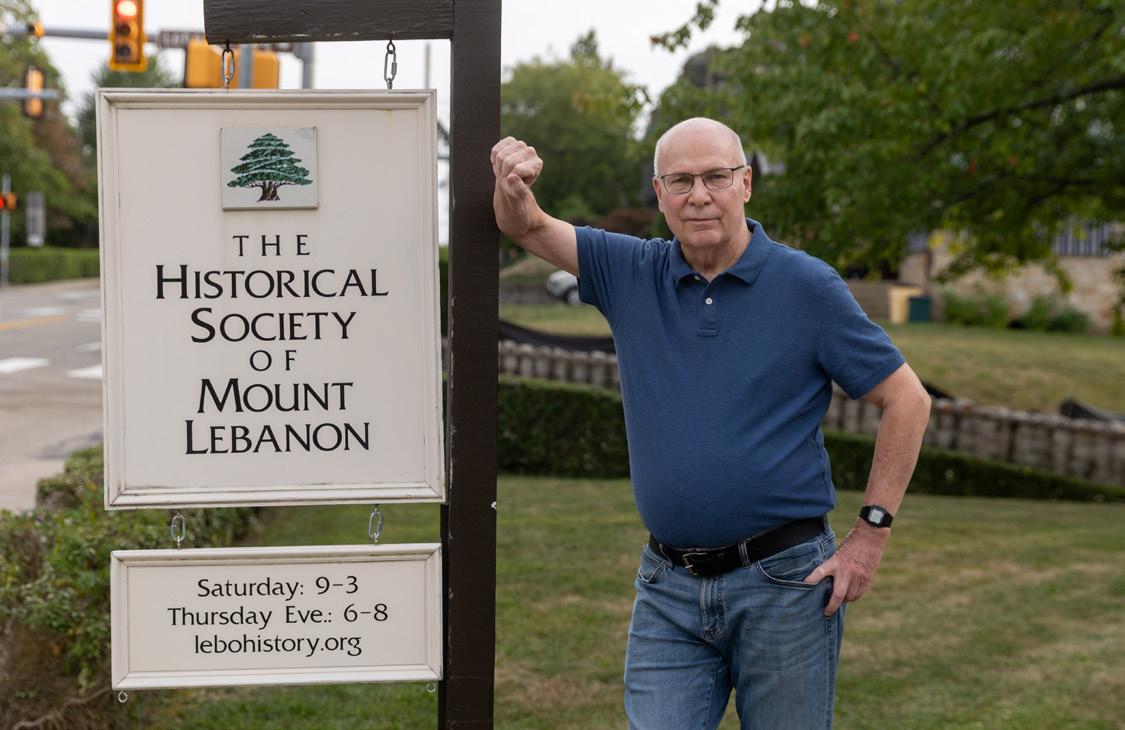
a family tree, as well as any discovered birth records, marriage records, past residences, military records, death records, newspaper clippings and much more.
It typically takes about three weeks to research someone’s history. The time can vary based on how many ancestors Jim’s able to locate, which is generally related to how long they’ve lived in the United States. If they were immigrants from Eastern Europe, for example, it could be a more difficult task.
“Based on my abilities and what I can find, I’m really close to being a professional and much less expensive,”
he said.
“I’ve done about 40 projects, and I’ve never had anyone disappointed in what I found. I am 77 years old – it does keep my brain stimulated. That’s one of the reasons why I do it.”
Jim was born in southern Iowa. He earned his undergraduate degree in mathematics from the University of Iowa and his graduate degree in industrial engineering from the University of Michigan. He was
recruited by Mellon Bank in Pennsylvania and became a Mt. Lebanon resident in 1975. At Mellon, he worked as a manager of information technology, and in 2007, retired after 36 years. He built systems and managed groups that built and maintained systems, primarily around databases, all of which fueled his interest in genealogy.
Since stepping down from the Mt. Lebanon Genealogy Society, Jim has taken on volunteer work with the Catholic Diocese of Pittsburgh’s Archives and Records Center, where he helps with requests for birth, marriage and death records. He continues to frequent the gym and walk daily around town, so he can be as fit physically as he is mentally.
“Oftentimes, people develop an interest in genealogy later in life, and by that time, the people who could tell the stories aren’t around anymore,” Jim said.
But now, that information is attainable, thanks to Jim and his interest in using data to solve problems.
Those interested in genealogy studies through Masonic Village should contact Jim Stuber at jimstuber47@gmail.com.
Photo by Mark Simpson
A VOLUNTEER AT HEART
Volunteering is a calling, and Ivan Arnold has answered the call many times over the last 40 years. The phone rings, and off he goes across town or the country helping people rebuild after tragedy. His efforts often entail putting in hours of physical labor to aid those in need.
“Volunteering has always been in my blood,” he said. “My mother was always helping someone, and my father was always helping people with carpentry and farm work.”
Last year, Ivan, a resident of Masonic Village at Elizabethtown, drove to the Dakotas for two weeks to harvest soybeans as part of his involvement with Farm Rescue. The mission of the organization is “to help family farms and ranches bridge crises so they have an opportunity to continue viable operations.”
Ivan grew up on a farm as the youngest of eight kids, so he’s no stranger to hard work.
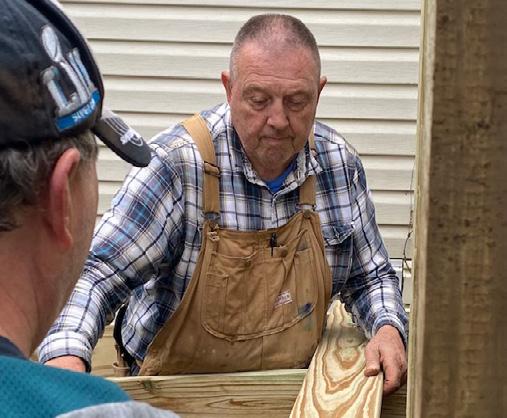
“We were poor for dollars but rich otherwise,” he said. “I was my mom’s right-hand man after my sister left for higher education. I learned how to take care of animals and how to work the fields. I could sew, iron, cook and do laundry at an early age. I couldn’t do any school activities since I had to help on the farm.”

Ivan spent three years with the U.S. Air Force where he earned his pilot certification at a private club on base. He earned his flight instructor certification about a year after returning home from the military. He was named Harrisburg Flight Instructor of the Year in 1973 before joining what is now a regional carrier for American Airlines for more than 33 years, flying into every major airport in the Northeast. In 1982, he started a side business of fertilizing lawns and doing roofing.
In 1988, Ivan fell off a two-story roof. The only resulting injury was to his leg.
“I’ve had a lot of divine intervention in my life,” he said. “I saw a beam of light [after the fall]. I thought, I have to still be here for some reason. Somebody’s telling me something. It inspired me to continue and do more volunteering.”
Divine intervention also contributed to Ivan becoming a Mason.
His wife’s aunt and uncle had a daughter with multiple sclerosis and were selling their handicap accessible van to a Masonic lodge. He dropped the van off and saw a group
of men wearing aprons. He quickly realized he knew most of them from his church, and he joined Abraham C. Treichler Lodge No. 682, Elizabethtown, soon after the encounter.
“I got involved quickly,” he said. “I served as Worshipful Master in 2001 and as District Blood Chairman [for the Masonic Blood + Organ Donor Program] from 2002 to 2020.”
He is still involved in Masonic education and teaching ritual work at the lodge.
Ivan is a jack of many trades. Combined with his strong will to give back to others, his skills range from carpentry to plumbing to electricity and roofing. Much of his volunteering has been done through churches and mission trips.
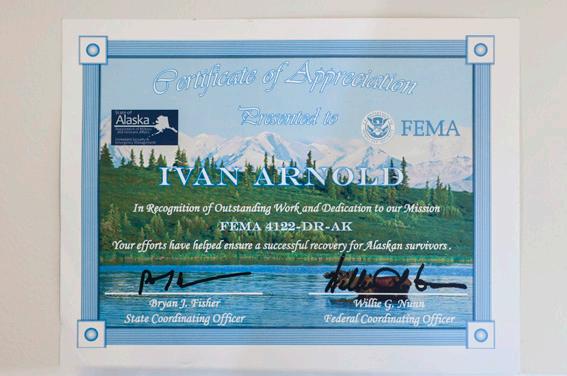
He has traveled to 12 states doing a range of work, including more than five weeks’ worth in 2024. He’s built handicap accessible ramps on people’s homes and footprints for greenhouses, cleared airport runways of water and helped after Hurricane Katrina through Carpenters Calling missionary group.
Ivan was also involved with Heart and Hand House missionary in West Virginia and its home repair and construction program and with building the Community Place on Washington in Elizabethtown, which includes a winter shelter, clothing and food bank and other social services. He was most recently in North Carolina with a Baptist Men’s Group in April repairing houses.
Ivan has met a lot of other volunteers, young and old, from around the country, and his wife joined him on some recent trips.
“There has been so many people I’ve worked with, which makes it really great,” he said. “I’ve influenced people and didn’t know it. Some young volunteers have come back to thank me.”
Seeing people who’ve lost everything – like those in the Carolinas affected by a flood who only had time to grab some papers before their homes were washed away – cry tears of gratitude for his help makes all the blood and sweat worth it for Ivan.
“I’ve always wanted to give. I don’t expect anything back,” he said. “I might need help when I’m older.”
Ivan also volunteered as Captain of the Fire Police (traffic control) with Londonderry Fire Company for 10 years. His role as an active responder ended in 2018, although he still responds to scheduled events.
Ivan and his wife, Sharon, moved to Masonic Village in 2018, which is when he officially retired from his roofing business. His volunteer efforts on campus have included helping with the audiovisual equipment at Sell Chapel and the Deike Auditorium and with the Masonic funeral team. When he’s not traveling for volunteer work, he delivers the morning newspaper to residents on his floor, and he’s active with the Rooster Woodshop, in the resident gardens and taking bus trips.
“We’re happy here,” Ivan said. “We have everything we need, and we’ve enjoyed it. I’m always on the go. I took my watch off the day I stopped flying.”
Ivan also enjoys visiting his son in Maine and his daughter in Mechanicsburg, Pennsylvania. He’s encouraged his two grandchildren to volunteer, and he plans to keep giving back as long as he is able.
“You don’t know what volunteering is about until you do it,” he said. “You can’t describe it to people. It has to be in your heart.”
A PARK FOR ALL BREEDS
Dogs and dog owners at Masonic Village at Sewickley have an upgraded spot to run or relax after new renovations to the campus dog park. Following feedback from residents on ideal dog park features, staff oversaw changes including enlarging the space, adding a covered gazebo and other things catering to the needs of people and pups.
Approximately 20 residents attended an open house at the dog park this past fall, with treats for both humans and dogs available. Along with residents bringing their pets to enjoy the revitalized space, therapy dogs are already visiting residents in the Sturgeon Health Care and Star Points Building.
As the population of dog owners has increased at Masonic Village, the dog park has become a soughtafter amenity. The new park is a quiet spot where residents can come drink their morning coffee or read the paper while their dog gets its morning exercise.
In addition to the gazebo area with a table and four chairs, there’s a water pump area for the dogs. And there are plans to add lighting in the gazebo.
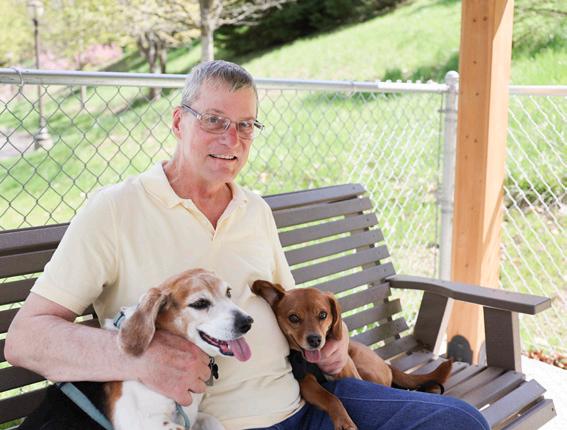
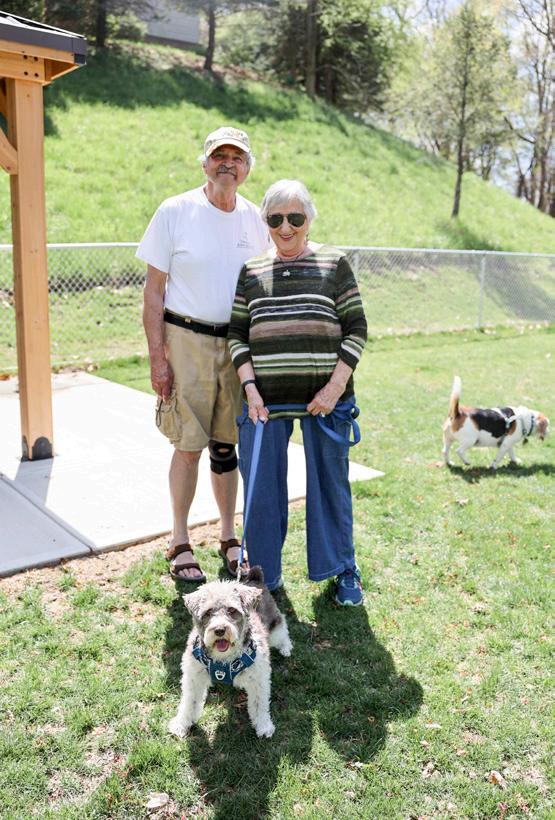
As younger populations move into Masonic Village, more and more of them are dog owners. When the original dog park request came in 10 years ago, there were only three to four dog owners asking for a dog park. When the request for an upgraded dog park came last year, the number of dog owners had increased to about 30.
The original dog park was located on a hillside and very steep, so it wasn’t the ideal location. Residents pushed for expanding and flattening the site or relocating the dog park. Campus leadership held an informational meeting with about a dozen dog owners who were interested in the project. They walked them through eight possible locations for the dog park, which were eventually narrowed down to two spots, including the site of the existing dog park.
The dog park ended up staying where it was originally located. Equipment was used to expand the site, cut trees, flatten the land and double the amount of usable space. A walkway enables people with scooters to
Bill Orr with Barney and Mochi
Glen Davis and Donna Billings with River
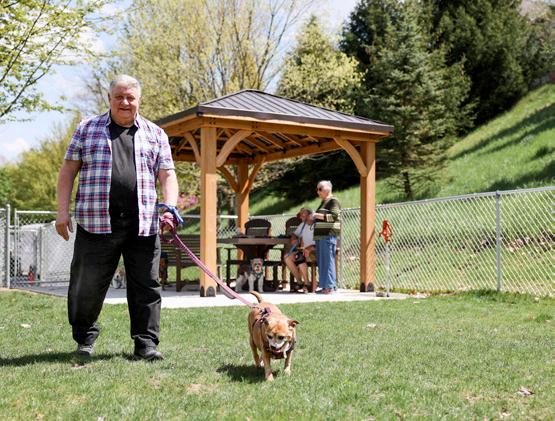
access the dog park, and a holding area was added to allow dogs to be brought in and out safely.
Resident Carolyn Hrach is currently raising Poppy, her 17th service dog in training for Canine Companions, which gives dogs to people with disabilities. She and her husband, Paul, currently live with her 14th Canine Companion puppy, Boris. Carolyn said the old dog park received little use because of the steep slope and other issues.
“The new dog park is now flat,” she said. “Humans can walk on the entire park to play with their dogs and clean up after them.”
Resident Donna Billings is the owner of River, a miniature schnauzer and a therapy dog. She is co-chair of the Art Studio and currently brings River there once a week to hang out with other residents. She’s looking forward to bringing him to the dog park this summer.
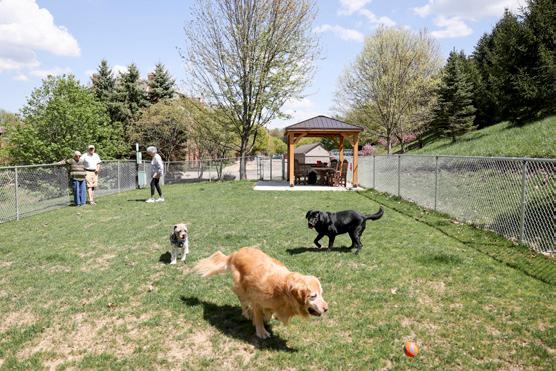
“I was a fan of the dog park since the very beginning,” she said. “Not only do we have residents with dogs, but family members of residents who visit with their dogs. This summer, I plan to have art classes in the dog park, and River will be there. People can paint or draw. It’s a great place to just come sit when the sun goes down, or watch the dogs play, even if you don’t have a dog of your own.”

Donald Kemerer with Bailey
From Pasture TO PLATE
The Masonic Village Farm in Elizabethtown has evolved over the last 115 years, but its commitment to serving residents of Masonic Village, giving back to the community and sustaining the land for future generations have remained untouched tenets.
Once a fully self-sufficient operation, the farm provided milk, meat, veggies and fruit for residents of Masonic Village. While operations were scaled back over the last 40 to 45 years to be more cost efficient as the campus population grew, the farm continues to supply high quality, fresh beef for residents and the local community, while also providing education and implementing sustainable practices for a better future.
The farm is run by Scotty Miller, farm manager, and Kaylee Frey, beef herdsperson (shown on p. 15, l-r). Kaylee joined the team last November. She’s the first in her family to pursue work on a farm, and after showing horses and goats through 4-H, she started at a dairy farm after high school.
“It’s a very rewarding job,” she said. “Especially here, being hands on with the cattle from birth to finish. I love the community part of Masonic Village and learning new things as I go. I work around good people, and it’s a positive environment. Being around the cows tops everything, though.”
This spring, the herd of 180 feeders increased by 128 with the arrival of new calves. These calves will grow up at Masonic Village, breed and the continue the cycle.
As recently as 2023, the farm was supplying beef to a processor that was selling it to high end restaurants as far as New York City. This practice was rolled back as focus turned to supplying campus restaurants, the Masonic Village Farm Market and the local community with a product that is Beef Quality Assurance certified. The beef herd was expanded to accommodate campus needs, as 6080% of beef served in dining venues is raised on campus.
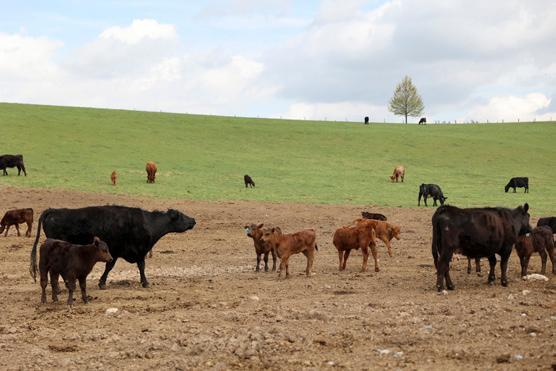
“There aren’t many places that can say they know exactly what went into that Delmonico on your plate,” Scotty said.
One of the farm’s new initiatives is participation in the PA Beef Council’s PA Beef to PA Schools program, which connects school districts across the state with cattle producers to put locally sourced beef on students’ lunch trays. The Masonic Village Farm supplies two local districts, Donegal and Manheim Township, with 500 to 900 pounds of ground beef per month. One pound of beef will feed approximately 5 1/2 students.
“It’s a way to get a quality product to local students,” Scotty said.
“There’s also the chance to educate younger students on where their food comes from. Some kids have never met a farmer before, and they think their food just comes from a grocery store. It’s always fun to see their reactions when they realize the beef in the tacos they had for lunch came from our farm.”
Farm staff also value connecting with residents at Masonic Village. Scotty provides a yearly update on the farm’s operations. There are several benches on the paths that surround the pastures, which invite people to observe the cattle.
“A lot of residents like to hang out there and watch the cows give birth,” Scotty said. “I try to stop and chat with them. A lot of times they will flag me down because they might have a question. That’s another important piece that we do here. We can educate the residents on what any farm does, not just what a beef farm does. It’s an important part of what we do in connecting with the community.”
Another priority for the farm staff is to network and build relationships with other farmers and industry experts, as well as with organizations like the PA Beef Council to promote their products and the National Cattlemen’s Beef Association and Pennsylvania Farm Bureau, which can help with funding and advocacy efforts. Partnerships with an agronomist helps with soil health, while a nutritionist assists with cattle health.
The Masonic Village Farm earned the 2011 National Environmental Stewardship Award from the National Cattlemen’s Beef Association, and sustainable practices remain at the forefront for staff. Practices include 8,000+ feet of fencing and stream crossings to prevent cattle from
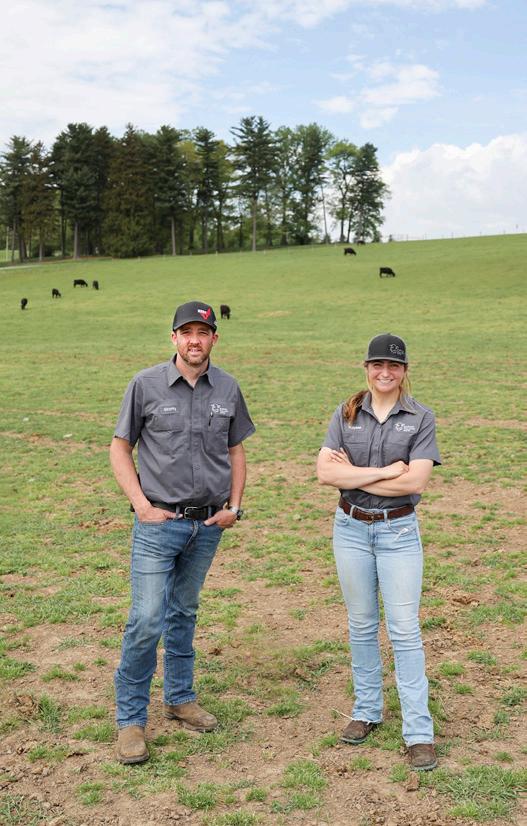
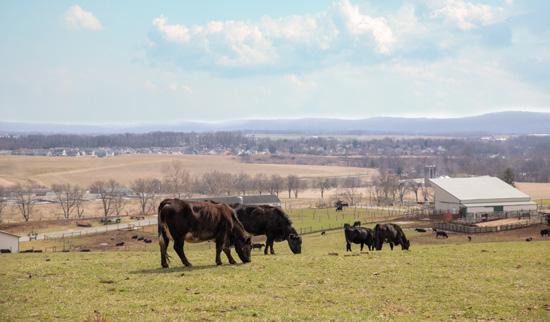
freely accessing streams or ponds, 200 acres of “highly erodible” cropland that was converted to pasture to save on the loss of topsoil and 350 acres of pasture divided into more than 50 paddocks, with temporary fencing to maintain the pastures and decrease wear on the land.
The hard work of farming won’t change anytime soon, but Scotty is looking at ways to make operations more streamlined in the future. He’s not afraid to try something new, while also being mindful of costs.
Staff currently use specialized software to monitor the herd, which includes electronic identification. This provides detailed information through a computer just by scanning a tag on an animal’s ear.
“The long-term goal is to keep on improving some of our efficiency,” he said. “There is a lot of new technology coming out. Drones, for instance, have gotten a lot better over the last two years. I’m really interested in using them for seeding and cover cropping. On the cow side, I’d like to get better with our computer input to keep track of the cows and the calves.”
Whether it’s vaccinating a herd of cattle, visiting with a legislator to discuss issues or educating students about what they’re eating, Masonic Village Farm staff are committed from pasture to plate.
“Farming is definitely a labor of love,” Scotty said. “It’s something I’ve wanted to do since I was a little boy. I love improving the soil every year, and I love working with the animals.
“We have two staff, so we make our steps count. We’re done when the work is done.”
GETTING THE “SCOOP”
Sibyl McNulty became the editor of Masonic Village at Sewickley’s “Village Views” newsletter almost by default.
One of her good friends, resident Will White, started the newsletter in 2002 and successfully ran it until 2022, when his health declined and he passed away soon after.
“When he was sick and in the Sturgeon Health Care Center, Will asked me to take over the newsletter,”
Sibyl said. “After thinking about it, I said ‘yes.’ His last issue was in March 2022, and I took it over in May and have been doing it ever since.”
The eight-page newsletter features history, Aleppo Township news and notes, trivia, campus news, birthdays, new resident updates and more. Sibyl writes and edits many of the articles herself, while others are submitted. One resident writes a monthly column about birds. The Aleppo Township manager contributes an article on township issues. Every other month, Sibyl writes an article, “What Do I Do?” where she interviews Masonic Village staff members about their jobs.
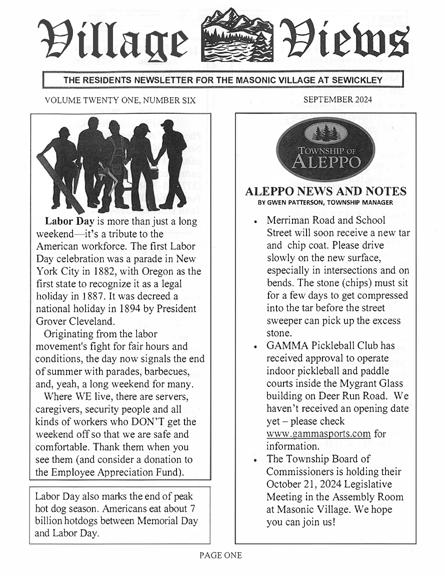
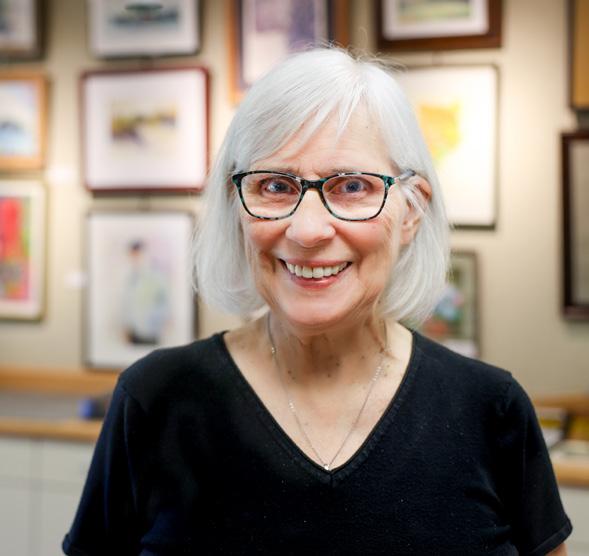
“I fill in all the gaps and put the newspaper together, and we print it right at Masonic Village,” she said. “I have a volunteer who proofreads it, and then the executive director approves it.”
One of Sibyl’s favorite issues was from Valentine’s Day a few years ago, when she asked residents to contribute a 50-word article about how they met the love of their life. She also enjoyed interviewing people about their favorite Christmas presents for a holiday issue.
At 79, Sibyl only recently retired from her career as a lawyer. She said she gets bored easily and likes to be busy. While the newsletter takes a lot of effort (approximately 20 hours a month), Sibyl considers it a “labor of love.”
“I get positive feedback from residents and staff, so that’s nice,” she said. “It keeps my brain sharp. I think I’ve done some important work. The first article I edited was about what our pastor [at Masonic Village] does. It was eyeopening and very helpful for a lot of people to understand his role.”
One topic Sibyl steers clear of is covering anything political. While she strongly encourages people to get involved in the community, whether it be a street clean-up or volunteering on a local board, she tries to stay out of the political fray.
A big challenge for Sibyl as an editor is story length requirements, like when she has to cut someone’s 750-word article down to 150 words, for example.
“I’m a good editor. You can trust me,” she said. “Most people are fine with my editing. For the most part, I’m given free rein and don’t get many complaints from people.”
Sibyl has always been interested in writing and English. She edited a few newsletters as a volunteer and served on the staff of her high school and college newspapers. When she lived in Delaware, she wrote for the “New Directions” newsletter, a local women’s publication. She also taught high school English.
Sibyl enjoys playing journalist because she gets to know people and “ask a lot of questions about things that are really fun,” she said.
“I’ve developed a great relationship with the office staff here,” she said. “The newspaper has evolved since Will ran it. It’s still eight pages, but I reduced the font to fit in more copy, which some people complained about. I’m much snarkier and sarcastic than Will was. People enjoy what I write.”


Sibyl and her husband, Paul, moved to Masonic Village in 2018. At first, she stayed mostly disengaged because she was still working full time. After she retired, she got more of a feel for the community and has loved it ever since.
“We live in a villa, which is great,” she said. “It has plenty of room, and we didn’t have to do a huge downsize. I like the people, and the staff and support team always have your back. They pay attention and are so caring. We have a nice clubhouse, art studio, card room, restaurant –pretty much anything you could possibly want.”
Sibyl said she’ll continue to chronicle all the goingson at Masonic Village as long as she is able.
“It has been a good run, but when volunteers stop volunteering, it stops happening. Hopefully people will still want to help me for many years to come,” she said.
FROM Behind the Scenes TO Front and Center
Years before settling in at Masonic Village at Dallas, resident Clarke Bittner spent time as an actor and Phil Donahue doppelganger, bringing characters to life and working alongside some of the industry’s most celebrated talents.
Clarke spent more than 15 years as an actor in commercials, films, training sessions and advertisements both locally and in New York City, where he lived for 14 years. He was even featured on the cover of a Post cereal box! He enjoyed doing parodies of longtime talk show host Phil Donahue, and people were impressed with the resemblance. He hosted Donavue! The Corporate Talk Show for many of America’s leading companies, emceeing entertaining meetings about new products, employee benefits and sales programs.
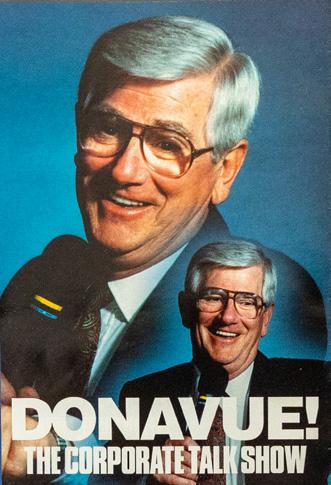
Clarke stumbled into acting at age 47, after spending many years as a corporate and banking executive. While he was working as senior vice president for a local bank in northeast Pennsylvania, he decided to develop a series of television commercials. A local ad agency did a casting session in New York and returned with a handful of professional actors. Clarke already knew the script because he had approved it. After watching the actors read their lines, he noted it sounded too rehearsed. He proceeded to look at the camera and start reciting the lines himself. He did so well, the head of production said he should replace the actor and appear in the commercial himself. The rest is history!

A few years after filming the bank commercial, Clarke was contacted by the head of production for a local television station, Maury Wint, who had created his own company in Scranton. He asked Clarke if he would travel to New York and serve as a narrator in a car dealer’s training film.
“It turns out that I work very well with a teleprompter,” he said. “I don’t read words, but phrases, and I can move my head naturally like I talk.”
Maury told Clarke he had a “bright future” as an actor and promised to call him for other opportunities. In the meantime, Clarke left his job at the bank and purchased part of a food distribution business. He continued acting occasionally and met with an agent in New York City. She was doing a casting session for Empire Commuter Airlines and wanted him to read for the role.
“I didn’t know if I was ready,” Clarke said. “I didn’t have a headshot or resume or anything. I sat at the casting session among other actors and actresses, and it was exciting.”
Following the audition, his agent, Dorothy Palmer, called him to say he booked the gig.
“If you can win jobs, the agent will get you out as much as you can,” Clarke said. “I became Dorothy’s pet project, and it started going well for me immediately.”
Clarke spoke with his wife, Joanne, an operating room nurse in New York City, about deciding to pursue acting full-time. “She said, ‘How about we invest in you instead of another new business? This acting thing is fun, and you seem to be enjoying it a lot.’”
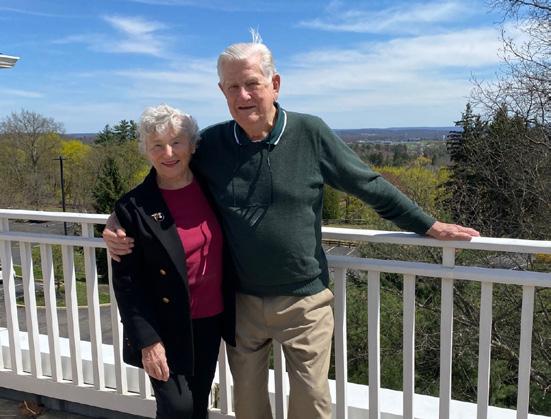
A working actor can qualify for membership in the Screen Actors Guild/SAG-AFTRA, the labor union for actors and actresses. As a member, Clarke received health insurance and retirement benefits for many years. His resume includes acting in both soap operas and films.
While working in New York, Clarke was invited to join “The Players Club,” a prestigious fraternity of actors and supporters of the arts. Through the group, he had the opportunity to eat dinner with actor and director Jose Ferrer. He spoke with actor Anthony Quinn at length about boxing (Anthony had appeared in a boxing movie). Clarke and his wife also met actor and dancer Van Johnson, actor Tony Randall and actress Janet Leigh.
“I met Miss America 1955 [Lee Ann Meriwether], who at that time was in her 60s and still stunning,” Clarke said. “We were at a cocktail party, and I bought her a drink. We had
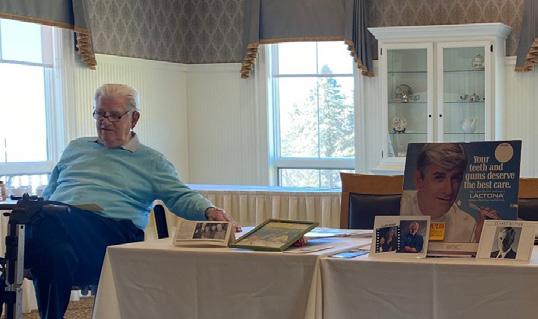
a fairly long conversation. She then turned to her husband and said, ‘Come here, I want you to meet my friend, Clarke.’ That was neat. It [the club] was a fun place to be.”
It has been 27 years since Clarke retired from acting. When it came time to look at retirement communities, Clarke and his wife decided that Masonic Village at Dallas was the right fit. Clarke first learned about Masonic Village from his father, who worked for the postal service and volunteered at the Elizabethtown campus separating their mail. He, like Clarke, was a Mason and Shriner for over 50 years.
“I have no snow to shovel, no grass to cut and no maintenance to do,” he said. “We’re on the top floor in a two-bedroom, two-bath apartment with one of the greatest views of northeast Pennsylvania. We have a balcony where I can see windmills on top of mountains 15 miles away. I enjoy living here.”
Clarke is a member of Washington Daylight Lodge No. 14 in Washington, D.C., where he worked as head of marketing for a company for several years. Clarke also served in the U.S. Army Reserves and was a teacher before starting his career in sales and marketing.
He also volunteered as a shepherd for the Shriners, driving children with special needs and their parents to Shriners Hospitals in Philadelphia, Boston and Erie.
“I’d pick up a family at 5 a.m. in Irem’s van, drive them to Philadelphia and wait for them, and then drive them home at the end of the day, returning the van to the Irem facility in Dallas,” he said. “I made more than 110 trips over many years.”
Only a handful of people at Masonic Village had known about Clarke’s background as an actor until he recently shared his experiences in a presentation to residents. There, he discussed the stories behind his career and showed off some of his advertisements, sales brochures and publicity photos.
“My greatest critic is my wife, and she told me I did well,” he said. “We had about 20 people come. I told them how in mid-life I made a right-hand turn in my career, from a businessman to an actor. Had I known what the odds would have been against doing it successfully, I probably wouldn’t have had the courage to try it. I did it anyway, and it turned out pretty good.”
Graduating Seniors Ready to Take on the World
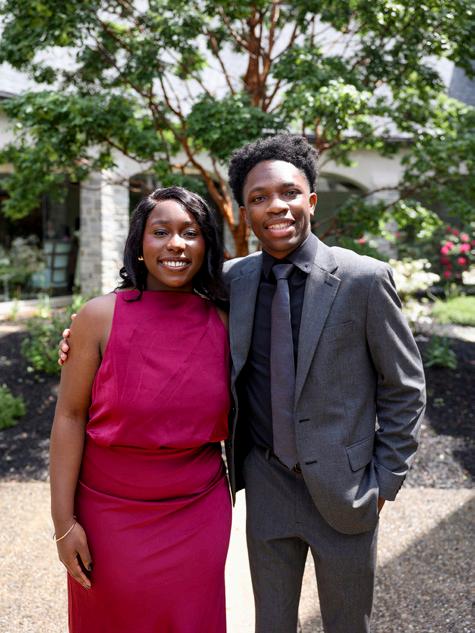
In May, youth, staff, donors, volunteers and Grand Lodge of Pennsylvania representatives gathered for the 100th annual Youth Appreciation Day to recognize the youth for their achievements in the classroom and beyond. During the event, graduating seniors Bridget and Calvin (shown above, l-r) were honored and shared remarks about their lives at the Masonic Children’s Home.
Both have had wonderful experiences at the children’s home. As they prepare for college, they look back at the journey that got them to where they are now and look forward to a bright future ahead.
Bridget has had many milestones throughout her time in high school. She received a leadership award for her involvement with the varsity cheerleading team and was also named Homecoming Queen this past fall.
She has lived at the children’s home since the summer before fourth grade and said it will be hard to leave her friends and the house parents she has grown to know and love.
“From a young age, I’ve been more on the timid side, so when I came here and was greeted with smiles and kindness from the staff and kids, I knew it would soon be a place I could call home,” Bridget said in her speech during Youth Appreciation Day. “We’ve gone through a pandemic together, and for a period of time, we only saw each other. Calling some of these people friends would be an understatement – we’re family.”
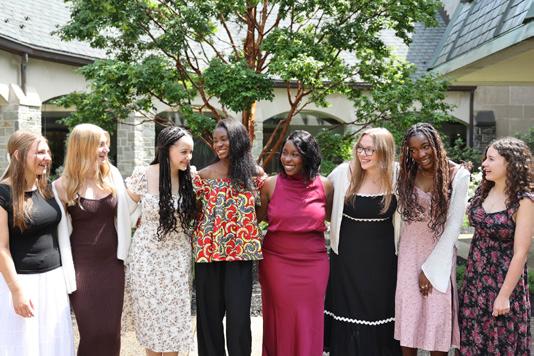
At the children’s home, Bridget said she became independent. She also learned patience, especially living with other girls in close quarters. She credits the house parents for giving her nothing but support and guidance.
“Because of [the children’s home], I’ve gained so many mentors in my life,” she said. “These house parents change lives. I’ve learned the most valuable lessons.”
Bridget will attend Widener University this fall to study psychology. “I’m ready for something new – a new chapter,” she said.
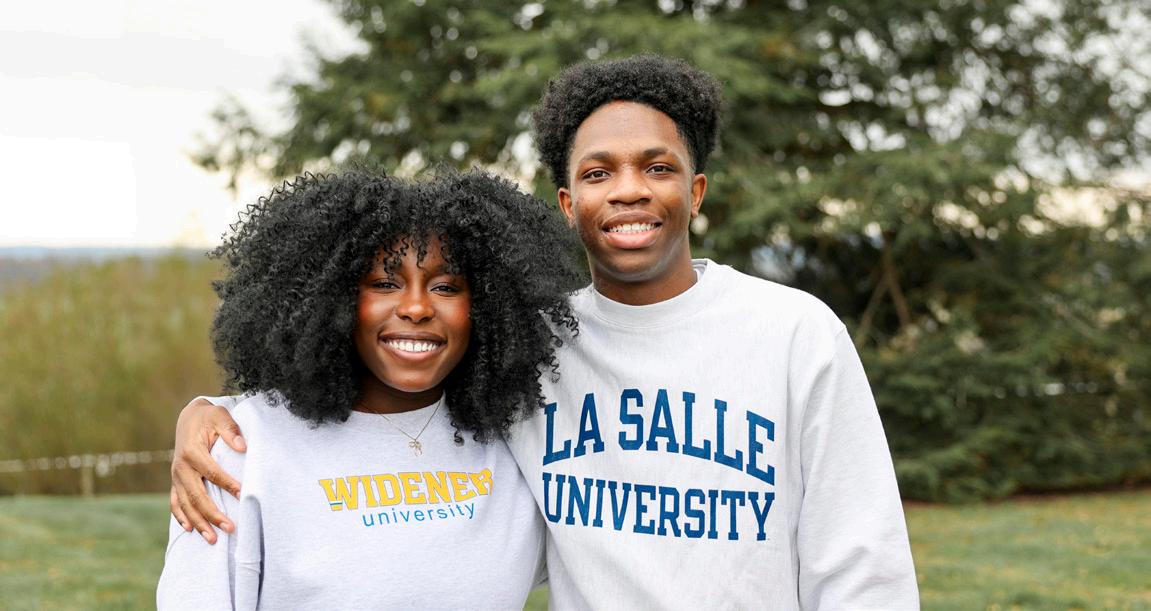
Calvin, another senior, first moved to the children’s home when he was 12 years old. Calvin’s older sister already lived at the home, and he has another sibling there now. There was an immediate connection between Calvin and his housemates, which has only grown stronger over the years.
“All of us are like family,” he said. “They’re my brothers.”
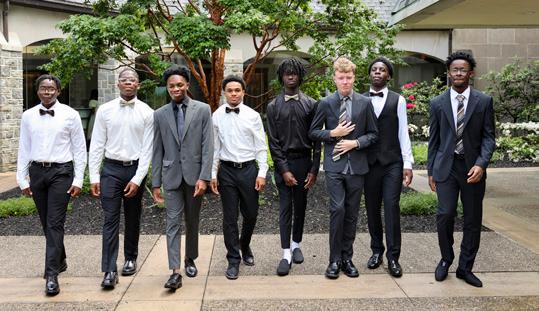
He recognizes the influence his house parents have had on his life, from teaching him valuable skills like tidying up his room, to learning how to manage time and keep his grades up.
“At every stage, I’ve always learned something from my house parents,” he said. “They taught me how to manage work, school and sports, and, most importantly, how to be a mature young man.”
Calvin was a member of both the football and track teams in high school and will attend La Salle University this fall to study nursing.
During his remarks to the seniors at Youth Appreciation Day, Grand Master Larry Derr said, “Congratulations! Everyone in this room is proud of you, as you should be of yourselves. Soon, you will embark on your next chapter in pursuit of your dreams. Always remember that the Pennsylvania Masonic fraternity believes in you and is here to support you.”
Both Bridget and Calvin thank the donors who have given them a caring, safe place to live and provided so many opportunities they wouldn’t have otherwise.
“I
am really grateful for everything they have not only done for me, but for everyone else here,” Calvin said. “We all appreciate it, so thank you very much.”
“I thank the donors who made these memories possible,” Bridget said. “Because of your genuine, generous hearts, we have the opportunities our families have prayed for.
I am forever indebted to
you.”

Supporting Friends & Neighbors in Creative Ways
The Tree of Life Fund supports retirement living residents at Masonic Village at Elizabethtown whose funds have been depleted by partially or fully subsidizing their monthly service fees. Recipients remain anonymous, and while residents may not know who is benefiting from the fund, they know it is a lifesaver for those facing a tough situation. Many residents feel peace of mind knowing if unforeseen circumstances affect them, they’ll have this lifeline available.
Individuals or groups can donate to the fund, and they may choose to have a leaf, acorn or rock engraved as part of the Tree of Life wall sculpture in the James Buchanan Clubhouse. The sculpture was presented to Masonic Village by Robert Burns Lodge No. 464, Harrisburg, in honor of Past Grand Master Arthur Kurtz.
For two resident groups which frequently donate to this important fund, it’s a way to show their neighbors they care while having a little fun in the process.
CRAFTING GENEROSITY
The Craft Group is a busy and creative bunch who meet weekly to share ideas and catch up with one another. Some crafters work together on projects, while others prefer to work at home.
The craft room is filled with wreaths, potholders, jewelry, cards and more, all available for sale.
Carol Worrell has been volunteering with the group for 16 years and spends 4 to 5 hours a week making jewelry. When she first started, the group was close to folding, but she and other volunteers worked together to rebuild it. Now, the craft room is often full of crafters working amidst piles of supplies.
“We make new friends,” Carol said. “You meet people you wouldn’t normally meet. Anybody can come. Some people just come to talk. We’re a good group, and we get along well.”
Through sales and donations to the group, they purchase materials and then give the remainder to the Tree of Life Fund, as well as the Masonic Village Employee Assistance Fund, the Masonic Children’s Home, the
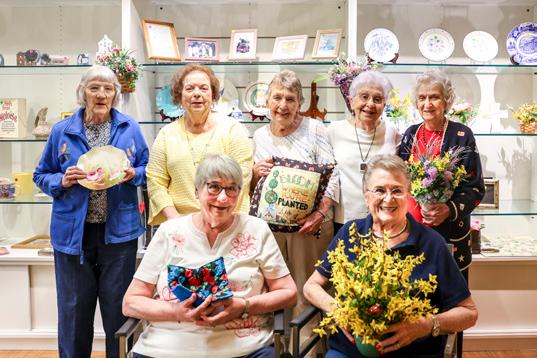
Bleiler Caring Cottage, the Friendship Fire and Hose Company, DeMolay and the Rainbow Girls.
The Craft Group recently provided a $10,000 donation to the Tree of Life. Since they started giving in 1990, they have donated more than $250,000 to the fund.
“I might be in that position one day,” Carol said regarding what motivates the group to keep crafting and donating. “Knowing we’re helping others keeps me here and doing it. I don’t want to see it end.”

The group meets Wednesdays at 1 p.m. in the James Buchanan Clubhouse, and everyone is welcome. The room is open for shopping from 8 a.m. to 8 p.m. daily.
A SOCIAL WAY TO SERVE OTHERS
Music and laughter waft from the Keystone Room the third Friday of each month around 3 p.m. Anywhere between 40 to 80 residents enjoy drinks, snacks and one another’s company. And it’s all for a good cause.
The Tree of Life Social has been held since 2006. Volunteers, including Ken and Deb Holler, Luther and Kim Zarfoss, Earl Page and Dan and Kay Kimmel,
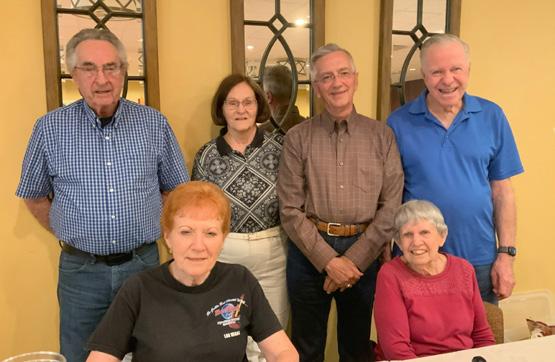
coordinate the supplies and live entertainment and help serve refreshments during the event.
Donations are collected to support the Tree of Life Fund, and 50/50 tickets are sold for $1 each or 6 for $5. The winners of the raffle often donate their earnings to the fund.
The group recently donated $10,000, and since its founding has given more than $30,000 to the Tree of Life Fund.
“This is a great opportunity to socialize with friends and other Masonic Village residents and establish new friendships,” Dan said. “Some people who walk by think it’s a private party, but it’s not. Everyone is welcome. It’s fun, and the music is good.”
People can choose to drink a cocktail, soda or nothing at all. They can also bring their own appetizers to share. Ken and Luther act as bartenders, while Kim is the “master of ceremonies.” Everyone helps to clean up and promote the next event. Kim and Luther work with the Office of Mission Advancement and Development to purchase rocks for the Tree of Life sculpture.
Entertainment may be a resident performing the trumpet or a local band. It’s not unusual to see residents dancing.
“Someday, it might be one of us on the receiving end,” Deb said of the group’s purpose. “This is a way to be social and see people you don’t normally see.”
“You meet a lot of new people and catch up on campus news,” Kim said. “Come for a drink before dinner. It’s for a good cause.”
For more information on making a gift to the Tree of Life Fund, return the enclosed business reply envelope, call 1-800-599-6454 or email giving@masoniccharitiespa.org.

View our charitable solicitation disclosures by scanning the QR code.
Elizabethtown, PA 17022-2219
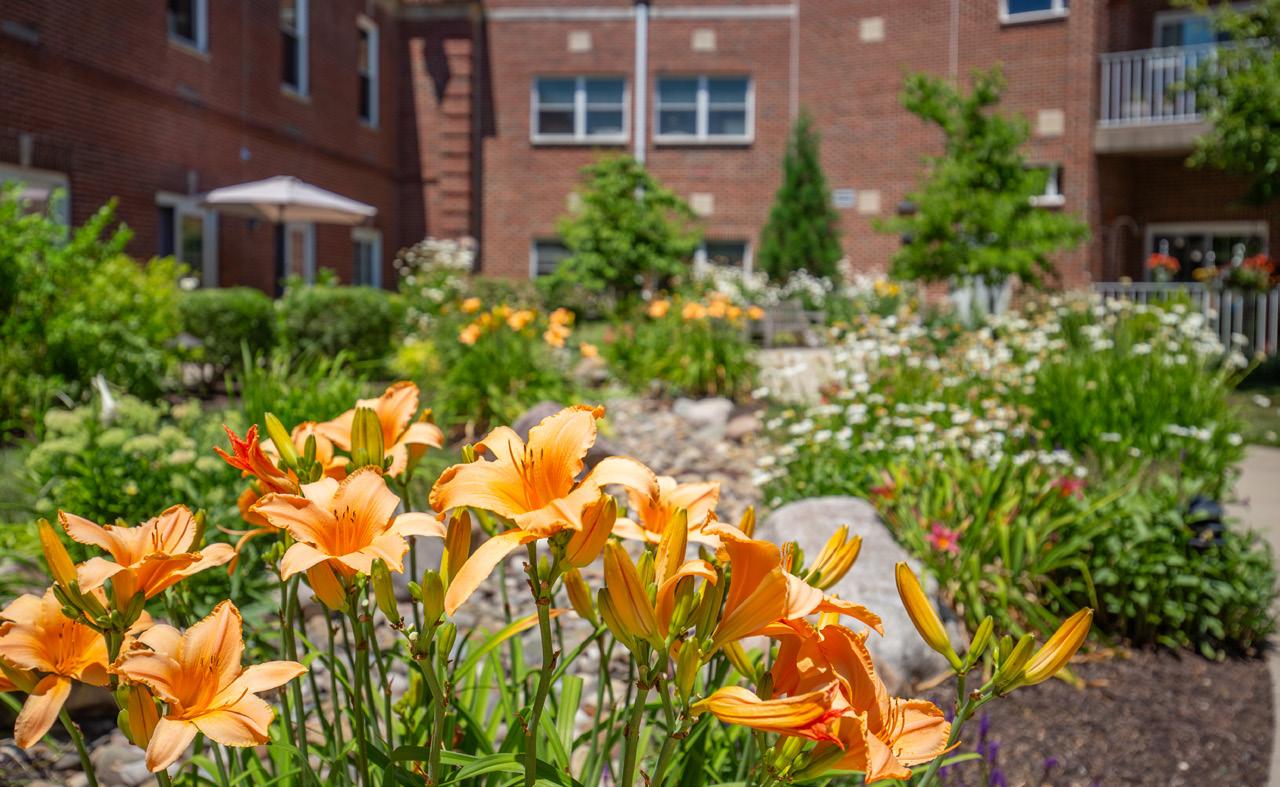
OUR MISSION: To empower and inspire our residents, customers and team members to achieve the highest quality of life, and to provide exceptional person-centered care and services to seniors, including many vulnerable members of our Masonic family without regard to their financial status.
Masonic Village at Lafayette Hill
